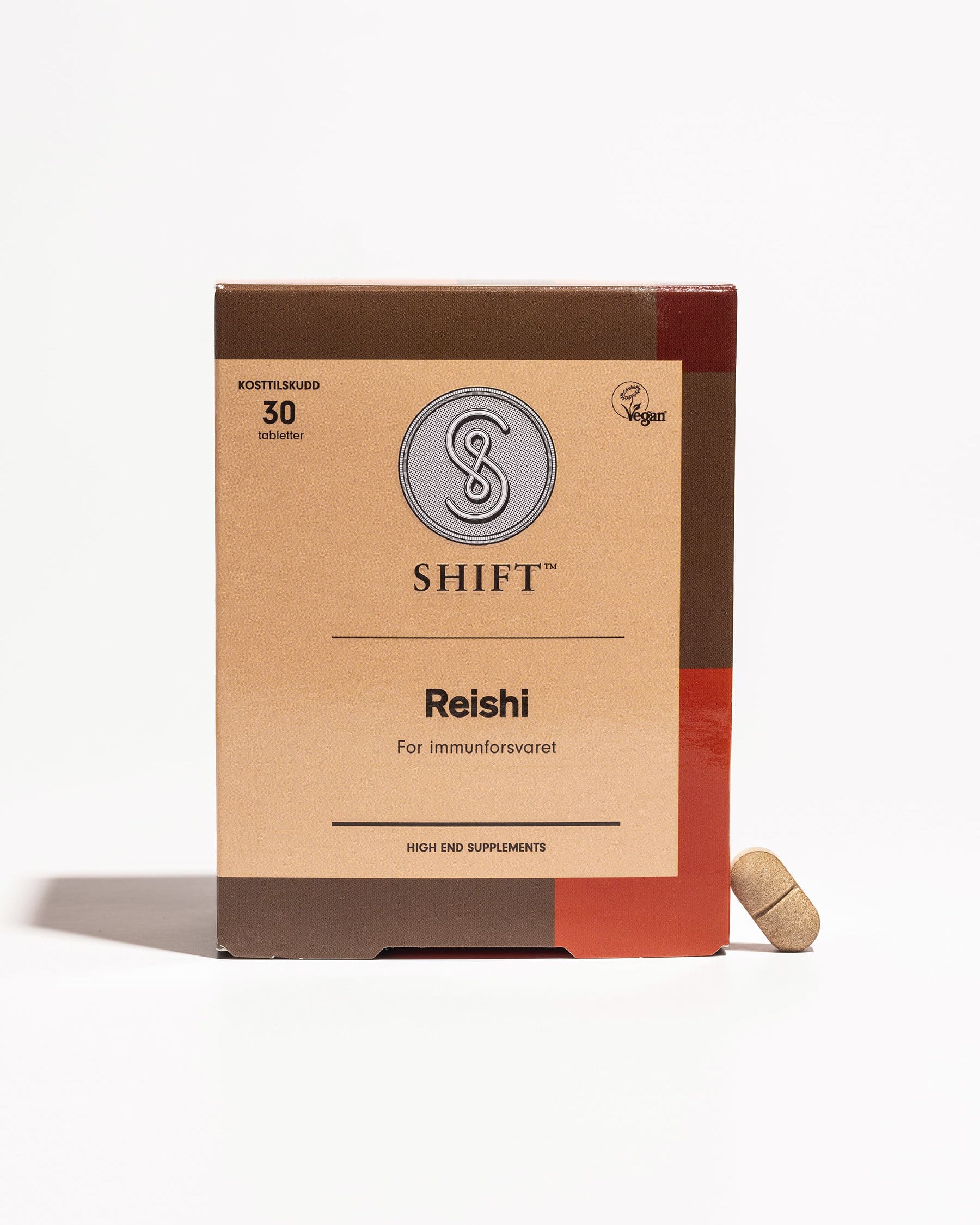Sleep Spray
With melatonin, ashwaganda and passionflower extract for easier falling asleep and better sleep. Spray in the mouth 30 minutes before bedtime.
Melatonin helps to:
- Reduce sleep time
- Relieve the subjective experience of jet lag
Ashwaganda contributes to:
- To support falling asleep
- Relaxation and unwinding
Passionflower contributes to:
- Relaxation and falling asleep
Description
SHIFT™ Sleep Spray gives you a good night's sleep with just a couple of sprays in your mouth around 30 minutes before bedtime. Active ingredients such as melatonin, ashwagandha and passionflower extract are quickly absorbed through the oral mucosa to reduce falling asleep time and promote relaxation for better sleep quality.
Melatonin is a natural sleep hormone that controls the circadian rhythm. Ashwagandha is an adaptogen that can restore bodily balance and reduce stress, with potential impact on circadian rhythm. Passionflower extract in SHIFT™ Sleep Spray provides calming and relaxing effects for faster falling asleep.
Ingredients
Contents
Ashwagandha: 13 mg
Passion flower extract: 10 mg
Melatonin: 1 mg
Use
Recommended daily dosage:
Adults from 18 years: 2 sprays in the mouth approximately 30 min before bedtime.
Intended for adults from 18 years.
Contents per 2 sprays:
Ashwaganda: 13 mg
Passion flower extract: 10 mg
Melatonin: 1 mg
Did you know that
- Approximately 1/3 of adults struggle with sleep on a weekly basis.
- Melatonin is a sleep-enhancing hormone that is produced and secreted from the pineal gland in the brain when the sun sets and darkness arrives.
- Artificial light from laptops, mobile phones and TV screens can reduce the secretion of melatonin and therefore negatively affect the circadian rhythm.
- In Sleep Spray, the active ingredients (melatonin, ashwaganda and passionflower) are absorbed through the oral mucosa, which can help reduce the time it takes to fall asleep.
For better sleep
Melatonin is a sleep-inducing hormone that is produced and secreted from the pineal gland in the brain when the sun sets and darkness falls. The hormone ensures a stable circadian rhythm and makes it easier to fall asleep. Exposure to artificial light in the evenings, such as laptops, mobile phones and TV screens, can reduce the secretion of melatonin and therefore negatively affect the circadian rhythm, making it more difficult to fall asleep. The production of melatonin is also related to age. Increasing age leads to a lower production of this sleep hormone. Low production and low secretion of melatonin can lead to problems falling asleep, waking up during the night or waking up before you are rested in the morning.
Ashwagandha (Withania somnifera), also known as Indian ginseng and winter cherry, is a common herbal medicine in traditional Ayurvedic health practices. The herb contains a number of active substances, including withanolides, which are said to have relaxing and balancing effects, as well as the substance triethylene glycol, which has been shown to help people fall asleep faster and improve the quality of sleep after ingestion. In addition, aswhagandha is said to affect receptors in the brain called gamma aminobutyric acid (GABA), which are receptors that affect the circadian rhythm.
Extract of passionflower (Passiflora incarnata), which is known for its calming and relaxing properties, and is thus frequently used in supplements related to sleep. Passionflower and its extracts are said to affect the levels of gamma aminobutyric acid (GABA) in the brain, which in turn can lead to relaxation and faster falling asleep.


